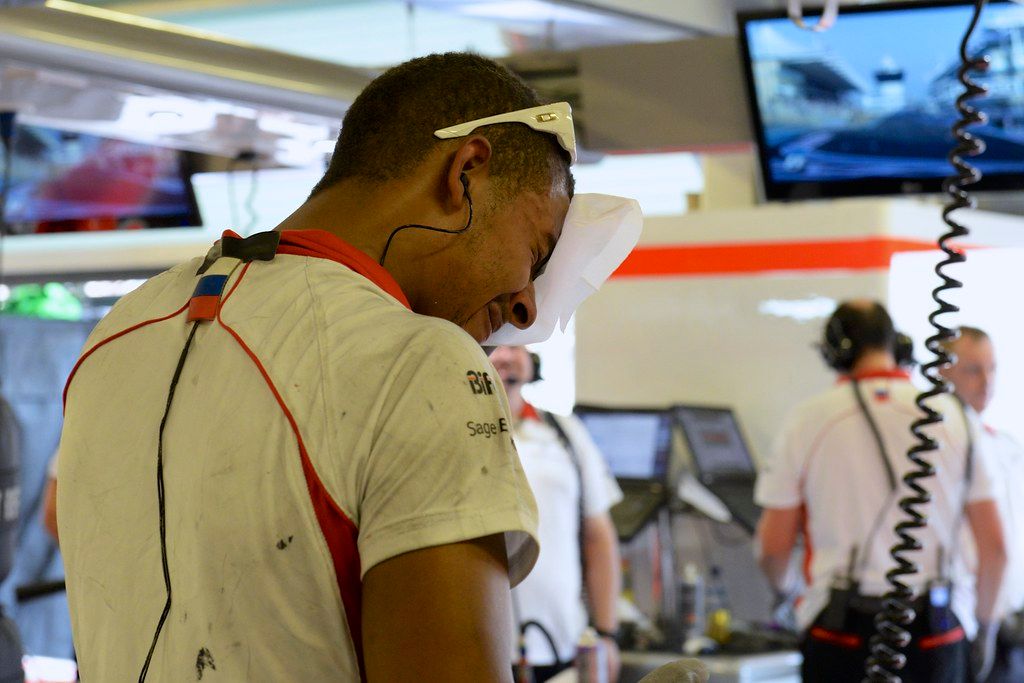
The journey to purchase a used car can often feel like navigating a complex maze. With countless options and varying price points, the process can quickly become overwhelming. However, focusing your search on used vehicles can indeed offer significant value, providing more bang for your buck if you know what to look for—and more importantly, what to avoid. This guide aims to equip you with the essential knowledge to make informed decisions and steer clear of common pitfalls.
While many car dealerships operate with integrity, it’s an unfortunate truth that some may employ tactics designed to disadvantage less-informed buyers. Understanding these potential red flags is crucial for securing a vehicle that meets your needs without unnecessary stress or financial burden. Being prepared and vigilant will undoubtedly help you spot these warning signs and ensure a transparent transaction.
In this comprehensive guide, we delve into critical dealership warning signs that indicate you might be walking into a less-than-ideal situation. We will also highlight specific used car models that have garnered reputations for questionable reliability, empowering you to avoid unexpected repair costs and ensure you drive away with a truly reliable deal.

1. **Lack of Transparency**One of the most obvious and critical indicators of a questionable dealership is a noticeable lack of transparency. A reputable and trustworthy dealership should always be open, honest, and completely upfront about every aspect of the vehicles they sell. This includes clear information on pricing, any associated fees, and the overall condition of the car.
If you find yourself in a situation where the dealership staff is evasive, vague, or simply unwilling to provide clear and straightforward answers, consider it a major red flag. This reluctance to share vital information can often signal that they might be attempting to conceal crucial details about the vehicle or the terms of the sale. Such behavior directly contradicts the objective and transparent approach consumers deserve.
To safeguard your interests, always insist on a comprehensive vehicle history report. This document should detail any past accidents, title issues, and a full record of maintenance. Additionally, before committing to any deal, demand a complete, itemized breakdown of all fees and charges to ensure you understand every cost involved.
Read more about: Beyond the Showroom: Why Inventory Woes and Digital Demands Are Reshaping Automotive Dealerships Today

2. **High-Pressure Sales Tactics**Aggressive and pushy sales tactics are a telltale sign that you might be dealing with a dealership that prioritizes its profit over your best interests. Salespeople who relentlessly pressure you into making a quick decision or aggressively upsell features, extended warranties, or additional services you neither want nor need should immediately raise concerns. This intense pressure can often obscure your judgment.
These tactics are designed to rush you through the buying process, making it difficult to properly evaluate the vehicle or the terms of the deal. Falling victim to such pressure can lead to buyer’s remorse, where you end up with a car that doesn’t fit your budget or includes services you’ll never utilize. The goal of a sales associate should be to facilitate, not to force a decision.
It is vital to resist succumbing to these high-pressure maneuvers. If you ever feel rushed, uncomfortable, or pushed beyond your comfort zone during negotiations, remember you always have the option to walk away. A truly reputable dealership will respect your decision-making process and allow you the time and space needed to make an informed choice.
Read more about: Beyond the Showroom: Why Inventory Woes and Digital Demands Are Reshaping Automotive Dealerships Today

3. **Incomplete Vehicle History**When purchasing a used vehicle, a reputable dealership is expected to provide a complete and verified history. This comprehensive record should include critical details such as any prior accidents, the vehicle’s maintenance logs, and the total number of previous owners. This information is fundamental to understanding a car’s past life and potential future reliability.
If a dealership is unable or unwilling to furnish this essential historical data, it serves as a significant warning sign. Their reluctance could indicate an attempt to hide a problematic past, perhaps involving undisclosed accidents, major repairs, or irregular maintenance that could impact the car’s long-term performance and safety. An opaque history often means a higher risk for the buyer.
Always take the initiative to verify the vehicle’s history independently using trusted online services. While these services provide valuable insights, it’s equally important to cross-reference this information with the dealership’s claims. Be extremely cautious of any discrepancies between what the dealership tells you and what the official history report reveals, as inconsistencies are a clear red flag.
Read more about: Unleash Your Inner Gearhead: 14 Classic Car Restoration Projects Under $10K That Promise High Returns

4. **Unverified Claims**Be wary of dealerships that engage in making exaggerated or entirely unverified claims about the vehicles they are trying to sell. These claims might include bold promises about exceptional gas mileage, outstanding performance capabilities, or an absolute absence of any mechanical issues. Such pronouncements often aim to create an overly optimistic impression, distracting from actual vehicle details.
A good rule of thumb in car buying, as in life, is that if a claim seems too good to be true, it very likely is. Trustworthy information is typically backed by data, verifiable records, or standard industry specifications, not by vague assurances. Unsupported assertions should always prompt a deeper level of skepticism from the buyer.
Before making any purchase, conduct thorough research on the specific vehicle model you are considering. Compare the dealership’s claims against expert reviews, owner testimonials, and established industry guides from sources like Kelley Blue Book or Consumer Reports. This evidence-based approach will help you separate credible information from baseless marketing hyperbole.
Read more about: Protecting Your Peace of Mind: AARP’s Essential Guide for Older Adults to Spot and Prevent Financial Scams

5. **Hidden Fees and Add-Ons**A common tactic employed by less scrupulous dealerships involves advertising a vehicle at an enticingly low price, only to significantly inflate the total cost with hidden fees and unwanted add-ons. These surcharges can stealthily accumulate, including various processing fees, documentation charges, advertising costs, or unexpectedly expensive extended warranties. What appeared to be a great deal can quickly become a financial burden.
These unannounced fees effectively erode any initial savings that attracted you to the vehicle in the first place, pushing the final price far beyond your anticipated budget. They are strategically introduced late in the buying process, often when you feel most committed, making it harder to object without feeling like you are restarting negotiations from scratch. This practice directly disadvantages the buyer financially.
To protect your wallet, meticulously review the entire contract before signing anything. Insist on a complete, itemized breakdown of every single charge, and do not hesitate to question any fee that seems unjustified, disproportionate, or was not clearly disclosed upfront. Transparency in pricing is a non-negotiable aspect of a fair transaction.
Read more about: Unmasking the Markup: Your Essential Guide to Spotting and Avoiding Hidden Car Dealer Fees

6. **Non-Negotiable Pricing**Encountering a dealership that staunchly refuses to engage in any negotiation on price or discuss potential discounts is a significant red flag that they may not have your best financial interests at heart. In the used car market, pricing is often subject to some degree of flexibility, and a willingness to negotiate is a hallmark of fair business practice.
Reputable dealerships typically understand that negotiation is an inherent part of the car-buying process. They are generally open to working with customers to arrive at a mutually agreeable and fair price, recognizing that a happy customer is a returning customer. A rigid ‘no negotiation’ stance suggests an unwillingness to compromise or potentially an inflated starting price.
Never shy away from the art of haggling when buying a used car. Arm yourself with knowledge of the vehicle’s current market value through independent research. Be prepared and confident enough to walk away if the dealership remains unwilling to work with you on pricing, as there are always other options available that value your business and budget.
Read more about: Unpacking the 2025 Ford Ranger: Why Ford’s Latest Midsize Pickup is the Ultimate Workhorse for Modern Professionals

7. **No Test Drive Allowed**Being denied the opportunity to test drive a vehicle is perhaps one of the most glaring and absolute red flags you can encounter at a dealership. A test drive is an indispensable part of the car-buying process, serving as your primary chance to personally assess the car’s real-world condition, how it handles on the road, and whether its operational characteristics meet your specific expectations.
Any dealership that restricts or outright forbids a test drive is likely attempting to conceal significant issues with the vehicle. These problems could range from mechanical defects, strange noises, poor handling, or even structural damage that would become evident once the car is in motion. This denial is a clear indication that something is amiss and they do not want you to discover it.
Always, without exception, insist on a thorough test drive. During this drive, pay meticulous attention to how the car accelerates, brakes, and steers. Listen carefully for any unusual sounds coming from the engine, transmission, or suspension, and take ample time to thoroughly evaluate the overall condition and responsiveness of the vehicle.
Navigating the used car market requires an astute eye not only for the vehicles themselves but also for the practices of the dealerships. Beyond the initial red flags concerning transparency and sales pressure, there are more subtle yet equally significant indicators that a dealership may not be operating in your best interest. Understanding these additional aspects, from staff demeanor to the crucial fine print of contracts, is vital for a secure purchase. Furthermore, an informed buyer knows that some car models, despite their initial appeal, carry a track record of reliability issues that can quickly turn a ‘deal’ into a financial drain.
Equipping yourself with knowledge about these less obvious dealership pitfalls and specific unreliable models will significantly enhance your ability to make a truly smart and reliable used car purchase. This next section delves into further deceptive practices and spotlights vehicles known to accumulate unexpected repair costs.
Read more about: Beyond the Limelight: Deconstructing the Art of the Actor’s Late-Career Comeback in Hollywood

8. **Unprofessional or Disinterested Staff**The overall attitude and behavior of dealership staff can often serve as a telling barometer for the quality and integrity of the business as a whole. Employees who exhibit rudeness, a clear lack of professionalism, or seem entirely disinterested in addressing your questions and needs are not just having a bad day; their conduct can reflect a broader organizational culture that places little value on customer care and satisfaction. This lack of engagement directly contrasts with the user-centric focus of a reputable establishment, which prioritizes a smooth and supportive purchasing journey.
Such behavior can manifest in various ways, from dismissive responses to your inquiries about vehicle specifics or warranty details, to a general unwillingness to assist with basic requests or provide thorough explanations. When staff members appear to be merely going through the motions or are openly unhelpful, it suggests a transactional rather than a relationship-oriented approach to sales. This environment can make it challenging to gather the necessary information for an informed decision and can leave you feeling undervalued as a customer.
It is crucial to trust your instincts in these situations. If you perceive a consistent pattern of disrespect, apathy, or a general disinterest in your concerns from multiple staff members, it’s a strong signal that this particular dealership may not be the ideal place to make a significant purchase. A positive and respectful interaction with staff is fundamental to a transparent and satisfactory car-buying experience, and you have every right to expect it.
9. **Verbal Promises Not in Writing**One of the most insidious tactics employed by less scrupulous dealerships involves making attractive verbal promises that they are unwilling or hesitant to commit to in writing. These assurances might pertain to extended warranties, specific repair work to be completed post-purchase, or unique features of the vehicle that are not immediately evident. While such spoken agreements can sound appealing and build a false sense of trust, they carry little to no legal weight if they are not formally documented within your contract.
This practice is particularly dangerous because, without written proof, any verbal agreement becomes incredibly difficult, if not impossible, to enforce. A dealership that engages in this behavior is essentially setting a trap, knowing that once you drive off the lot, their spoken word can easily be denied or forgotten. Such an approach completely undermines the objective and transparent principles that reliable consumer transactions are built upon, potentially leaving you without the promised benefits or repairs.
To safeguard your investment and ensure all agreed-upon terms are met, always insist that any and all promises made verbally are explicitly included and documented within your final sales contract. If the dealership staff expresses reluctance, provides excuses, or outright refuses to put these agreements in writing, consider it a significant red flag. It is a fundamental right of the buyer to have all conditions of sale clearly articulated and legally binding, reinforcing the importance of a clear and accessible contract for every consumer.
Read more about: Stay Safe, Save Money: A Consumer Reports Guide to Spotting Used Car Fraud Online

10. **Unfavorable Online Reviews**In today’s digital age, the collective experience of past customers, as reflected in online reviews and ratings, provides an invaluable resource for prospective buyers. Before you even step foot onto a dealership lot, a thorough review of their online reputation can offer deep insights into their operational practices and customer service standards. A consistent pattern of negative feedback, particularly reviews that frequently mention issues related to transparency, pricing discrepancies, or unprofessional behavior, serves as a powerful indicator that the dealership may not be reputable.
These reviews often highlight specific pain points that previous customers have encountered, ranging from aggressive sales tactics and undisclosed fees to poor post-sale support or issues with vehicle quality that were not addressed. While a single negative review might be an anomaly, a recurring theme of similar complaints across multiple platforms strongly suggests systemic problems within the dealership. This evidence-based approach to research is a cornerstone of making informed decisions, helping you avoid common pitfalls.
When analyzing online feedback, pay close attention to the details within the reviews. Look for concrete examples of shady practices or unsatisfactory resolutions, and notice if the dealership consistently fails to respond to or effectively resolve customer grievances. Such a pattern is a clear warning sign, and it empowers you to make a practical, actionable decision: if the online consensus points to a problematic experience, it is almost always wiser to explore other dealerships with a more positive and consistent track record.
Read more about: Beyond the Gavel: 13 Core Reasons Why Coveted Classic Cars Often Fail to Hit Their Reserve at Auction

11. **Employing Yo-Yo Financing**Yo-yo financing, also known as spot delivery, is a deceptive tactic where a dealership allows you to drive off the lot with a car before your financing is fully finalized. Initially, this might seem like a convenient service, as you get to take your new vehicle home quickly. However, this practice carries significant risks and can often be a setup for a scam where the dealer later informs you that the original, appealing financing terms you agreed upon have fallen through.
The dealership will then claim that you no longer qualify for the initial low-interest rate or favorable terms. Suddenly, the only way to retain the vehicle is to agree to a new loan with significantly higher interest rates or less favorable conditions, often after you’ve already grown attached to the car. This maneuver preys on the buyer’s emotional investment and commitment, making it much harder to walk away and seek alternative financing, effectively trapping you in a more expensive loan.
To prevent falling victim to yo-yo financing, it is imperative to secure pre-approval for an auto loan from an independent lender before you visit the dealership. This ensures you know exactly what interest rate you qualify for, strengthening your negotiating position. Furthermore, never leave the dealership with a vehicle until all aspects of your financing agreement are absolutely final and documented in a signed contract that clearly outlines all loan details and repayment terms. This proactive step ensures transparent and objective dealings.
Read more about: Consumer Alert: Unmasking the 13 Car Dealership Scams That Cost Buyers Thousands

12. **Hiding Details in the Fine Print**The fine print of a car purchase contract is not merely a formality; it is where critical details, often overlooked by eager buyers, are hidden, sometimes intentionally. While you might diligently review the final price, APR, and loan term, it is equally important to scrutinize the contract’s smaller clauses for any additional charges, add-ons, or extra services that you did not explicitly agree to or were not clearly discussed. These sneaky extras can quietly accumulate, potentially increasing your total cost by hundreds of dollars more than you initially intended.
These concealed charges might include obscure administrative fees, unexpected dealership preparation fees, or even an unrequested extended warranty that adds significant cost without your explicit consent. Less scrupulous dealerships rely on the assumption that buyers, often overwhelmed by the volume of paperwork and the excitement of a new car, will sign without a thorough review. This practice directly contradicts the principles of clear, concise, and accessible information, which is paramount for consumer protection.
To protect yourself from these hidden costs, dedicate ample time to read every single line of the contract before signing anything. Do not hesitate to ask for clarification on any charge or clause that seems unclear, unjustified, or was not part of your initial understanding. Reputable lenders and dealerships will be transparent and willing to explain every detail, and they should correct any discrepancies without complaint. If a dealership pushes back or attempts to rush you through this review, it is a definitive sign to walk away and seek a more honest and transparent transaction elsewhere.
Read more about: Where Are They Hiding? 14 Powerful Concepts Who Vanished From The Auto Show — And If They’ll Ever Be Built Now

13. **Used Cars to Approach with Caution: The Mini Cooper**While the Mini Cooper boasts an undeniable charm, distinctive European styling, and a generally fun-to-drive persona, its appeal often belies a significant drawback in the used car market: a less-than-stellar reputation for reliability. Across various models, including the Roadster, Clubman, and the classic Mini Cooper itself, reports of frequent mechanical issues and the need for regular, often expensive, repairs tend to drag down their long-term value and ownership experience for second or third owners. This situation can quickly erode any initial savings made on the purchase price.
The inherent complexity of their European engineering, coupled with the brand’s specific parts requirements, often translates into higher labor costs and more expensive replacement parts when maintenance or repairs become necessary. What might seem like an affordable entry into stylish driving can soon become a continuous drain on your finances, contradicting the practical and actionable advice that guides wise used car purchases. Prospective buyers should be aware that the charm of a used Mini Cooper might come at a steep price in the repair shop.
For those considering a used Mini Cooper, rigorous research into specific model years known for fewer issues is paramount, alongside a comprehensive pre-purchase inspection by an independent mechanic specializing in European vehicles. However, the consistent feedback regarding their reliability across the board suggests that for buyers prioritizing low maintenance costs and long-term financial predictability, other used car options might present a significantly better and more worry-free investment.
Read more about: Unlock Single-Digit APRs: The Definitive Guide to Negotiating Your Credit Card Interest Rate

14. **Used Cars to Approach with Caution: The Dodge Grand Caravan**The Dodge Grand Caravan, particularly models from 2013 to 2016, has often been considered by families requiring ample space due to its affordability. However, a deeper look reveals significant drawbacks that savvy used car buyers should absolutely consider, making it a vehicle frequently flagged for avoidance. U.S. News & World Report explicitly states that the Grand Caravan from these years has a “low-reliability score, falling far short of class leaders,” a critical assessment that should immediately raise concerns for potential owners.
Beyond its reliability issues, which can translate into frequent and costly repair shop visits, the Grand Caravan also receives low marks for safety. The Insurance Institute for Highway Safety gives the 2020 Caravan, for example, poor ratings for its headlights, a vital component for nighttime visibility and accident prevention. Furthermore, a significant concern for families is the reported difficulty with its car seat anchors, which are often “hard to find or stuck too deep in the seat to access,” a major safety impediment for parents.
While its low-rent cabin materials might not be a sole deal-breaker, the combination of poor reliability, concerning safety scores, and interior components that quickly show wear makes the Dodge Grand Caravan a less-than-ideal choice in the used minivan market. Any initial savings on its purchase price are highly likely to be offset by unexpected maintenance, repair costs, and potential compromises on safety, directly countering the objective of securing a reliable and secure used vehicle. For a worry-free experience, it’s prudent to steer clear of these models on used car lots.
The journey to buying a used car doesn’t have to be fraught with peril. By understanding the common tactics of less scrupulous dealerships and identifying vehicles with known reliability issues, you empower yourself to make decisions that truly serve your best interests. Remember, a great deal isn’t just about the initial price; it’s about the total cost of ownership, the peace of mind that comes with reliability, and a transparent, honest transaction. Stay vigilant, do your homework, and never hesitate to walk away if a situation feels off. Your ideal used car—one that offers true value and dependability—is out there, waiting for an informed buyer like you to find it.




